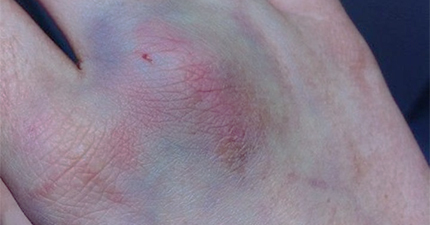When I was in high school, most of my friends always did better than I did in school and on tests. I don’t know why. I wasn’t the best student but I wasn’t the worst either. Just mediocre. I was hanging out with people in high school who cared a lot more about academics than I did so they usually did much better than me.
Once, however, I happened to do better than most of my friend group on a test.
One of the guys in the group got really mad. I’m talking really, really mad. He had been the one to ask me about my score but he got red faced when I shared it. He was used to doing better than me but did worse than me on one test. He started to make jokes. “I did worse than Alice (I was using the name Alice at the time instead of Ace)? I really bombed!”
Why am I sharing this now? Because I think that worrying over what our friends think can have a disastrous effect on our ability to try new things. I hear things like the following from different people all the time.
“I have a brilliant new idea but I need to run it past everyone I know before I try it out.”
“What if people think that I think I’m better than them if I start to take my own writing seriously?”
“I want to put together a mutual aid project but I don’t want to be on my moral high horse about it.”
I can’t remember who said this and will edit in the name of the person who did if anyone knows and cares to contact me but I heard somewhere that living a creative life takes endurance in the face of humiliation. You have to try things even if you’re not sure how they will go or how people around you react.
I’ll let you in on another secret—you may not receive support from everyone who knows you when you try new things. Trying new things can create ruptures in established dynamics. This makes us very, very uncomfortable.
The assumption that a lot of us make when we start things is that the closer someone is to us, the more we are entitled to that person’s support. We start to worry anxiously about the approval of familiar people, those people we know well enough that we think we can predict their opinions. We worry that if we aren’t supported by people we already know, that we don’t deserve support at all.
But guess what?
You don’t need support from every single person you know for everything. Trying new things can expose you to new people, people you don’t know yet, and you might really like those people.
In my personal experience, I usually meet the funniest and the coolest people when I go out of my comfort zone. Teaching a workshop at a local space, writing about a topic I care about, or organizing a community initiative—these are all ways in which I’ve made new friends.
In my personal experience, I’ve also noticed that people I thought I was cool with will say that I’m a know-it-all just because I tried teaching a workshop but then ask to register for free or will only give me criticisms about how I do marketing but then ask me to help them promote something whenever they need it.
I bring up the story that I told in the beginning of this article as an example because you don’t actually need everyone that you have an established social dynamic with to approve of you before you try something. In fact, you might find that there are people around you who approve of you only when they look down on you because they are used to using you as a measuring unit of their own success, not because they see you as a friend.
I don’t think that people are malicious when they do this. I used a story from high school because I think that most of us are given to insecurity as teens. Because of this, most of us forgive teens when they act insecure. I certainly don’t look at this guy I hung out with in high school through the lens of this one instance from way back. I gave the example I did because I think that it shows a dynamic common to many friendships no matter how old we get but from a type of person we usually forgive—a high school boy.
It’s actually normal for the people closest to us to get more uncomfortable when we try new things than complete strangers because they are more used to seeing us fit a particular pattern. “I’m still okay because I’m better than Ace” may be something that my high school friend thought about himself. Because I was testing worse than other people, I became a mark for the distinction between safe and unsafe. He felt safe as long as he did better than me. His comment wasn’t really about me but about his own perceptions of safety and achievement. That was why he kept me around.
Not everyone who keeps us around actually likes us. That’s a pity. We might only know about this when we act more like ourselves.
When we try new things or start new projects, we actually challenge our friends to really be our friends. We might also find out who actually likes us or not. There’s all sorts of hidden dynamics in friendships. We become abbreviations of ourselves in other people’s imaginations. Never let the imagined disapproval of someone whose validation you don’t need stop you from growing and trying out things that you want to do.


